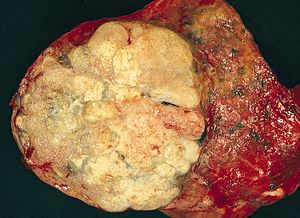All trials on the list are supported by nci. Sclc accounting for about 25 of all lung cancers and the remaining 75 collectively referred to as non sclc.
 The Biology And Management Of Non Small Cell Lung Cancer
The Biology And Management Of Non Small Cell Lung Cancer
the biology and management of non small cell lung cancer is important information accompanied by photo and HD pictures sourced from all websites in the world. Download this image for free in High-Definition resolution the choice "download button" below. If you do not find the exact resolution you are looking for, then go for a native or higher resolution.
Don't forget to bookmark the biology and management of non small cell lung cancer using Ctrl + D (PC) or Command + D (macos). If you are using mobile phone, you could also use menu drawer from browser. Whether it's Windows, Mac, iOs or Android, you will be able to download the images using download button.
Recent developments martin reck david f heigener tony mok jean charles soria klaus f rabe non small cell lung cancer is one of the leading causes of deaths from cancer worldwide.

The biology and management of non small cell lung cancer. Small cell lung cancer is a disease in which malignant cancer cells form in the tissues of the lung. 2 however for several clinical and therapeutic reasons lung cancers are often divided into 2 major subdivisions. Important advancements in the treatment of non small cell lung cancer nsclc have been achieved over the past two decades increasing our understanding of the disease biology and mechanisms of tumour progression and advancing early detection and multimodal care.
Signs and symptoms of small cell lung cancer include coughing shortness of breath and chest pain. The clinical trials on this list are for non small cell lung cancer. Clinical trials are research studies that involve people.
Lung cancer is the leading cause of cancer related mortality in both men and women in the united states 1. Therefore improvements in diagnostics and treatments are urgently needed. Non small cell lung cancer nsclc accounts for approximately 85 of all lung cancer cases 2.
There are two main types of small cell lung cancer. There are 4 major types of lung cancersmall cell sclc squamous cell adenocarcinoma and large cellas well as several relatively uncommon types. Non small cell lung cancer is the most common type of lung cancer.
Despite major advances in the molecular definition of the disease screening and therapy non small cell lung cancer nsclc is still characterized by a disappointing overall survival depending on subtype and tumor stage. Historically metastatic nsclc was treated as a single disease entity and palliative chemotherapy resulted in modest. Smoking is the major risk factor for small cell lung cancer.
The majority of patients with nsclc present with distant metastases for which chemotherapy continues to be the mainstay of treatment 2. Lung cancer 1 management of non small cell lung cancer. Lung cancer is the leading cause of cancer related mortality in the united states.
Important advancements in the treatment of non small cell lung cancer nsclc have been achieved over the past two decades increasing our understanding of the disease biology and mechanisms of tumour progression and advancing early detection and multimodal care. Its serious but treatment can sometimes cure it or stop it from getting worse. Non small cell lung cancer nsclc accounts for 85 of all lung cancers while small cell lung cancer accounts for about 15.
Ncis basic information about clinical trials explains the types and phases of trials and how they are carried out.
 The Biology And Management Of Non Small Cell Lung Cancer
The Biology And Management Of Non Small Cell Lung Cancer
 The Biology And Management Of Non Small Cell Lung Cancer
The Biology And Management Of Non Small Cell Lung Cancer
 Figure 2 From The Biology And Management Of Non Small Cell
Figure 2 From The Biology And Management Of Non Small Cell
 Management Of Non Small Cell Lung Cancer The Era Of
Management Of Non Small Cell Lung Cancer The Era Of
 Management Of Non Small Cell Lung Cancer Recent
Management Of Non Small Cell Lung Cancer Recent
 Management Of Non Small Cell Lung Cancer Recent
Management Of Non Small Cell Lung Cancer Recent
Treatment Of Non Small Cell Lung Cancer Nsclc
 Therapeutic Management Of Alk Nonsmall Cell Lung Cancer
Therapeutic Management Of Alk Nonsmall Cell Lung Cancer
 Table 2 From The Biology And Management Of Non Small Cell
Table 2 From The Biology And Management Of Non Small Cell
 Gene Expression Profiling In Non Small Cell Lung Cancer
Gene Expression Profiling In Non Small Cell Lung Cancer
 Neoplasms Of The Lung Harrison S Principles Of Internal
Neoplasms Of The Lung Harrison S Principles Of Internal
